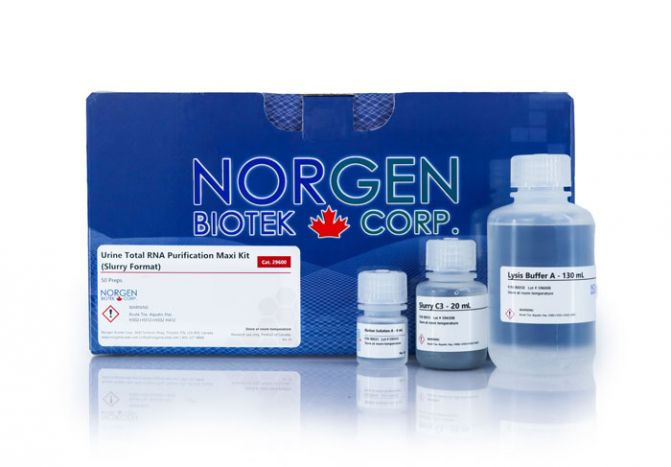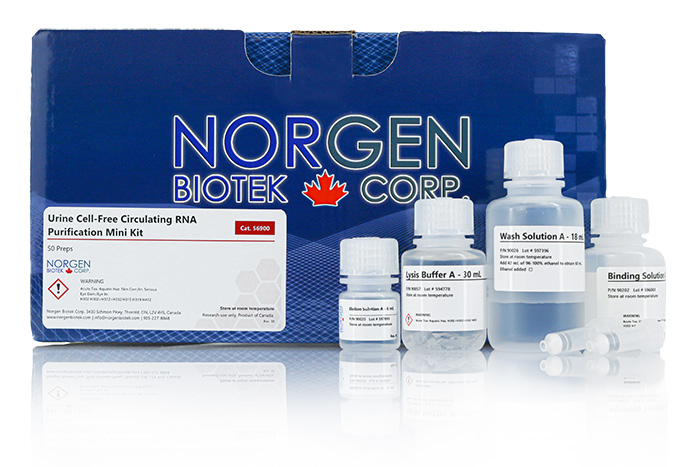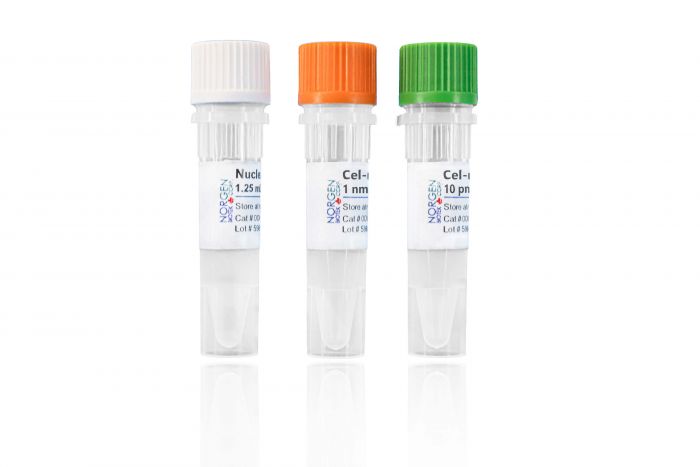Urine microRNA Purification Kit

For research use only and NOT intended for in vitro diagnostics.
Urine microRNA Purification Kit
Register today to receive an exclusive 15% off* on your first order.
Supporting Data
Figure 1. Isolation and Detection of microRNA from Urine Samples. Norgen's Urine microRNA Purification Kit was used to isolate microRNA from 8 different 1.5 mL urine samples. The purified microRNA was then used as the template in an RT-qPCR reaction to detect the human miR-21 gene. Five microlitres of the isolated RNA were used as the template in the RT step, and 5 µL from the RT step was used in the qPCR reaction. As it can be seen, the qPCR was able to successfully detect and amplify the miR-21 gene in all cases, indicating the high quality of the isolated urine microRNA. The black line in the graph above corresponds to the No Template Control.
|
Kit Specifications
|
|
|
Volume of Urine Processed
|
0.5 - 1 mL
|
| Size of RNA Purified | All sizes, including < 200 nt |
| Time to Complete 10 Purifications |
< 30 minutes
|
Storage Conditions and Product Stability
All solutions should be kept tightly sealed and stored at room temperature. This kit is stable for 2 years after the date of shipment.
| Component | Cat. 29000 (25 preps) |
|---|---|
| Lysis Buffer A | 2 x 20 mL |
| Wash Solution A | 18 mL |
| Elution Solution A | 6 mL |
| Mini Spin Columns | 25 |
| Collection Tubes | 25 |
| Elution Tubes (1.7 mL) | 25 |
| Product Insert | 1 |
Documentation
FAQs
Spin Column
RPM= √RCF/(1.118x10-5)(r)
Where RCF = required gravitational acceleration (relative centrifugal force in units of g); r = radius of the rotor in cm; and RPM = the number of revolutions per minute required to achieve the necessary g-force.
- RNase contamination
RNases may be introduced during the use of the kit. Ensure proper procedures are followed when working with RNA. Please refer to “Working with RNA” at the beginning of this user guide.
- Procedure not performed quickly enough
In order to maintain the integrity of the RNA, it is important that the procedure be performed quickly.
- The cells are old
Older samples contain prematurely lysed cells which release RNase and can degrade RNA. Fresh urine samples are recommended.
We recommend the following steps to prepare frozen urine for isolation:
- Gently warm the sample to room temperature or 37°C for 5 min.
- DO NOT perform a centrifugation step after thawing frozen cell-free Urine samples - this will eliminate the precipitated proteins leading to loss of protein-bound cf-NA or exosomes.
- Proceed with the protocol.
We recommend the use of Norgen’s Urine Preservative when collecting urine samples. Norgen’s Urine Preservative is designed for the preservation of nucleic acids and proteins in fresh urine samples at ambient temperatures, therefore no protein precipitation will occur and the purified nucleic acids will be of a higher quality.




